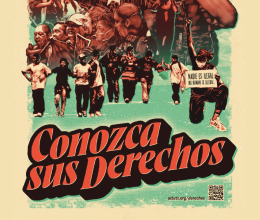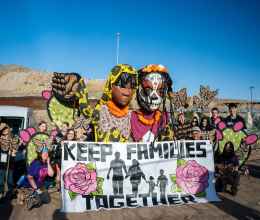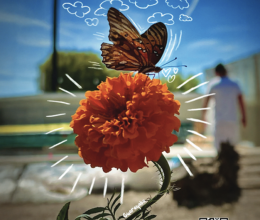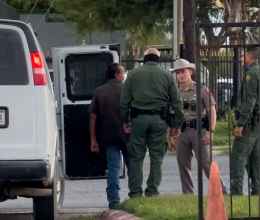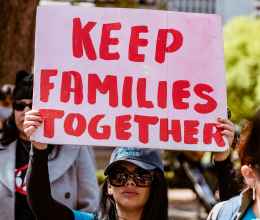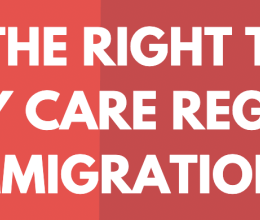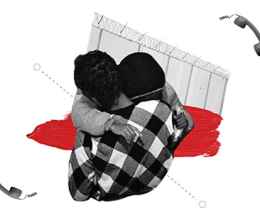
I was almost home when I learned that protestors were gathering at Terminal E of George Bush Intercontinental Airport in Houston. I turned my car around and headed straight to the airport.
It was Jan. 28, 2017, the day after the newly elected president had issued an executive order suspending the entry of foreign nationals to the United States from seven Muslim-majority countries. The Muslim ban echoed Donald Trump’s shameful campaign pledge to stop Muslims from coming to America. As a son of Mexican immigrants and lawyer at the ACLU of Texas, I felt a sense of urgency to help protect people from this hateful attack on their civil rights.
By the time I arrived at the airport, about 50 people of all ages were holding placards and welcoming signs. A heavy police presence loomed. Other volunteer lawyers and I turned a Starbucks inside the airport into a makeshift law office to assist families looking for relatives who were scheduled to arrive.
U.S. Customs and Border Protection (CBP) was detaining travelers who had just landed. The agency, infamous for its lack of transparency and oversight, prohibited family members and attorneys from contacting travelers or obtaining any information about them. It was only after our national ACLU team in New York had secured a court order blocking the ban that we were able to start connecting families with their loved ones. I was deeply moved as supporters cheered at the release of each detained person, most of whom CBP had kept incommunicado for hours.
Later that night, after the crowd swelled to hundreds, an elderly Muslim mother approached me and held my hand. With tenderness, she expressed her sincere gratitude for helping reunite her with family.
It didn’t matter that we were strangers from different communities. In that moment, I felt the bond of humanity that connects us all and it galvanized my courage to keep fighting against injustice, especially in my hometown.
The ACLU of Texas subsequently joined ACLU affiliates from across the country in filing Freedom of Information Act (FOIA) lawsuits demanding records from CBP about their implementation of the Muslim ban. Documents we later obtained confirmed that the agency’s enforcement of the executive order was chaotic and dangerous. In the first week alone, CBP targeted nearly 2,000 travelers, unlawfully detaining individuals on the bases of national origin and race.
The Muslim ban openly sanctioned discrimination and ripped families apart causing enduring harm. It only came to an end after four years of community-led advocacy on Jan. 20, 2021, when President Biden rescinded the ban and closed a dark chapter in American history.
Despite a change in administrations, CBP continues to engage in racial profiling and other constitutional abuses targeting immigrants, asylum seekers, and people of color — particularly along the Texas border.
CBP’s abuses are rampant:
- CBP detains migrants in inhumane conditions for extended periods of time without access to counsel.
- CBP expels migrants to dangerous parts of Mexico, denying them rightful access to the asylum process.
- CBP remains unaccountable for the aggressive tactics and excessive use of force against migrants, including the recent abusive behavior against Haitian migrants seeking refuge here.
- CBP agents patrol the highly militarized border communities of Texas, often engaging in traffic stops of persons they suspect to be migrants merely by how they look.
- CBP’s vehicle pursuits result in dramatically increasing deadly encounters.
We cannot let CBP get away with violating people’s rights and exceeding the limits of their legal authority. Since the current administration refuses to rein in this rogue agency, it’s up to us to hold them accountable.
And we can if we work together. At a fundraiser that Muslims in Houston later organized for the ACLU, one attendee took me aside to tell me that she and other members of her community are committed to advocating for the rights of others the way non-Muslims had advocated for hers.
Our fight against the Muslim ban showed the beauty and power of solidarity in America’s most diverse city. Now, we must continue this fight with immigrants and border communities in Texas.
